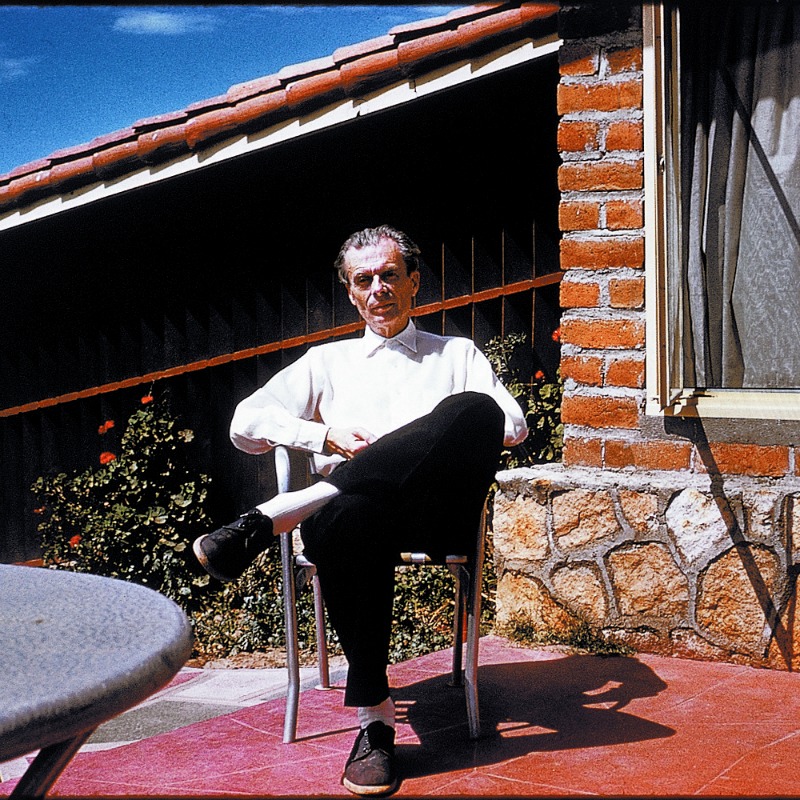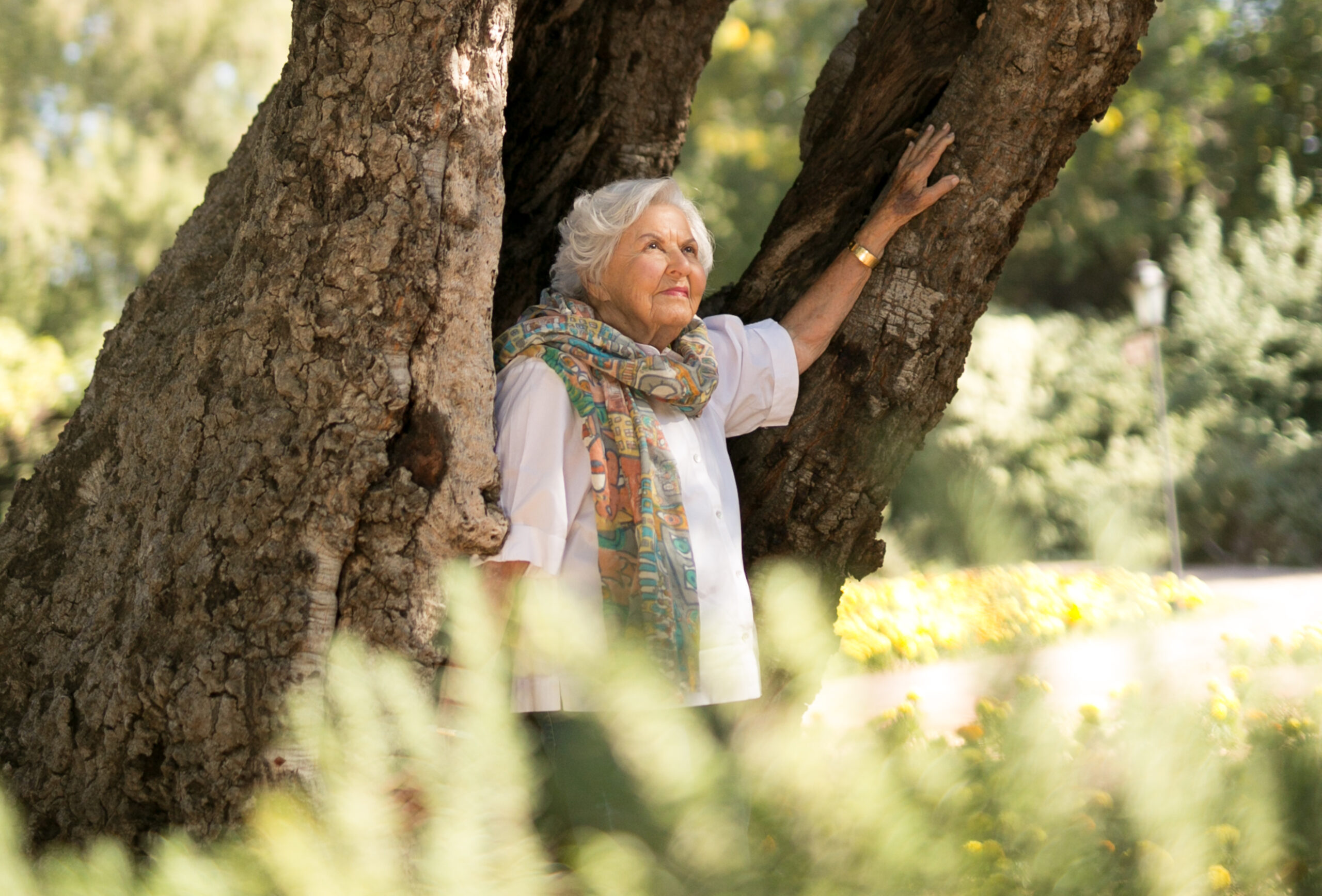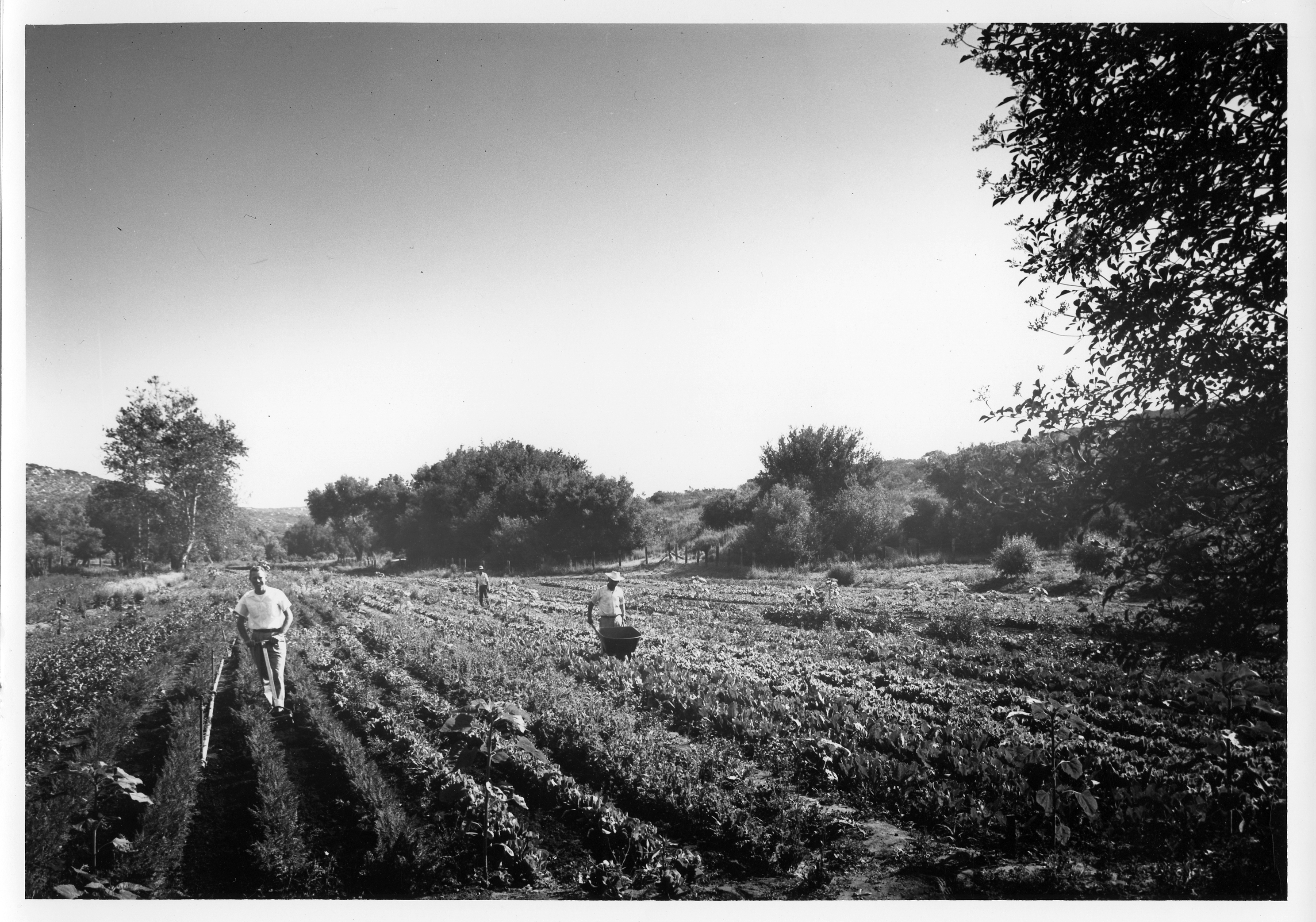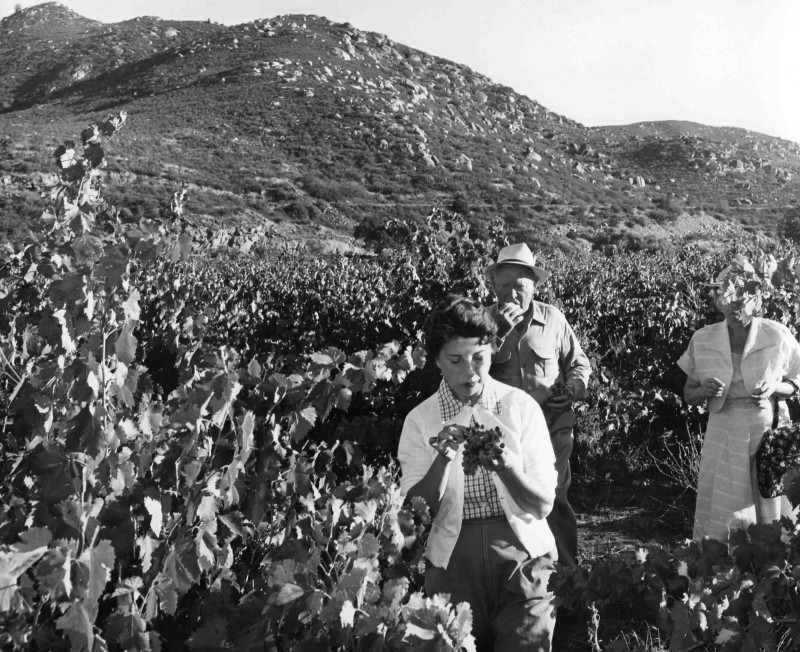Origins of the Ranch, Part XVII

Brave New Ranch—Aldous Huxley’s affection for the Ranch, and its influence on his last novel “Island.”
This old photograph, one of the few of writer Aldous Huxley in Rancho La Puerta’s archives, has a mysterious power. The famous author, gaunt, struggling with his health, sits in front of a humble adobe-walled casita, unblinking in the sun, his face carved by light and shadow as if he is an immobile statue looking over an Aztec ball court.
The year was most likely 1959, and Huxley was deep into writing a draft of what would be his last novel, Island, published in 1962. On November 22, 1963, he succumbed to cancer at his house near Mulholland Drive in Los Angeles in what his wife Laura—a friend of Deborah Szekely—described as “the most serene, the most beautiful death.”
Certainly the Ranch was an ideal final writing retreat for the author.
Born in Surrey, England, in 1894, Aldous Huxley’s popular works in fiction and non-fiction included Brave New World (1932), Eyeless in Gaza (1936) and After Many A Summer (1939), released in the U.S. as After Many A Summer Dies The Swan and considered by many Hollywood aficionados to be in the same pantheon as Budd Schulberg’s What Makes Sammy Run, Nathanael West’s Day of the Locust, F. Scott Fitzgerald’s The Last Tycoon, Joan Didion’s Play It As It Lays, and other works that chronicle the excesses of Tinseltown.
In the 1960s, the Hippies discovered Huxley’s “The Doors of Perception”—his essay/memoir of his experience with the psychedelic drugs peyote and LSD.
There may not be an American Baby Boomer today who isn’t familiar with at least some of his work, but his novel Island? Ask around the dining room at the Ranch sometime and you won’t find a soul who’s read it.
That’s a shame, because Island, according to Deborah, opens with several chapters that were probably inspired by Deborah’s own life story of growing up with her brother and parents on a beach at the jungle’s edge in Tahiti.
In Island, Will Farnaby, a newspaperman, lies on a jungle floor, his body thrumming with “this pain, this annihilating weakness” from injuries suffered in a shipwreck on a rocky coast. His mind drifts between hallucinatory memories and consciousness. A voice keeps calling, “Attention. Attention.”
When he opens his eyes, he sees “two exquisite children looking down at him, their eyes wide with astonishment and a fascinated horror. One is a boy dressed only in a green loincloth. The other, a little girl, carries a basket of fruit on her head.
“How beautiful they were, and how faultless, how extraordinarily elegant!” he thinks, and lucidity returns…he is saved.
According to Deborah, she is that little girl, with her brother. The novel’s characters live on an island known as Pala in an ideal society, much as Deborah’s parents found paradise on the edge of their blue lagoon.
Sounds a bit like the television series Lost, no? Or a host of other shipwrecks and airplane crashes that find the survivor(s) lost—and found—in “paradise.” Like most Huxley works, Island is still in print and easy to find. Bring it with you the next time you visit the Ranch? Why not? It’s a good read.
***
In 1960 Huxley and Professor Edmond Szekely collaborated on Rancho La Puerta’s 20th Anniversary celebration; a gathering of intellectuals they called the Human Potential Symposium. It was a natural offshoot of the Professor’s lectures to guests each week, and it introduced the world to the term Human Potential.
(Michael Murphy, co-founder of Esalen Institute, has credited his stay at Rancho La Puerta with helping him form the concept in 1962 for Esalen in Big Sur, which aims to this day “to promote initiatives for social advance and fundamental research into the potentials of human nature.”)
The Human Potential Symposium was a success, but Huxley could not fully participate: he came down with a bad case of laryngitis and attended in silence. The transcripts are in the Ranch archives, but studying them must be—as the saying goes—left for another day, and another entry in Origins of the Ranch.


